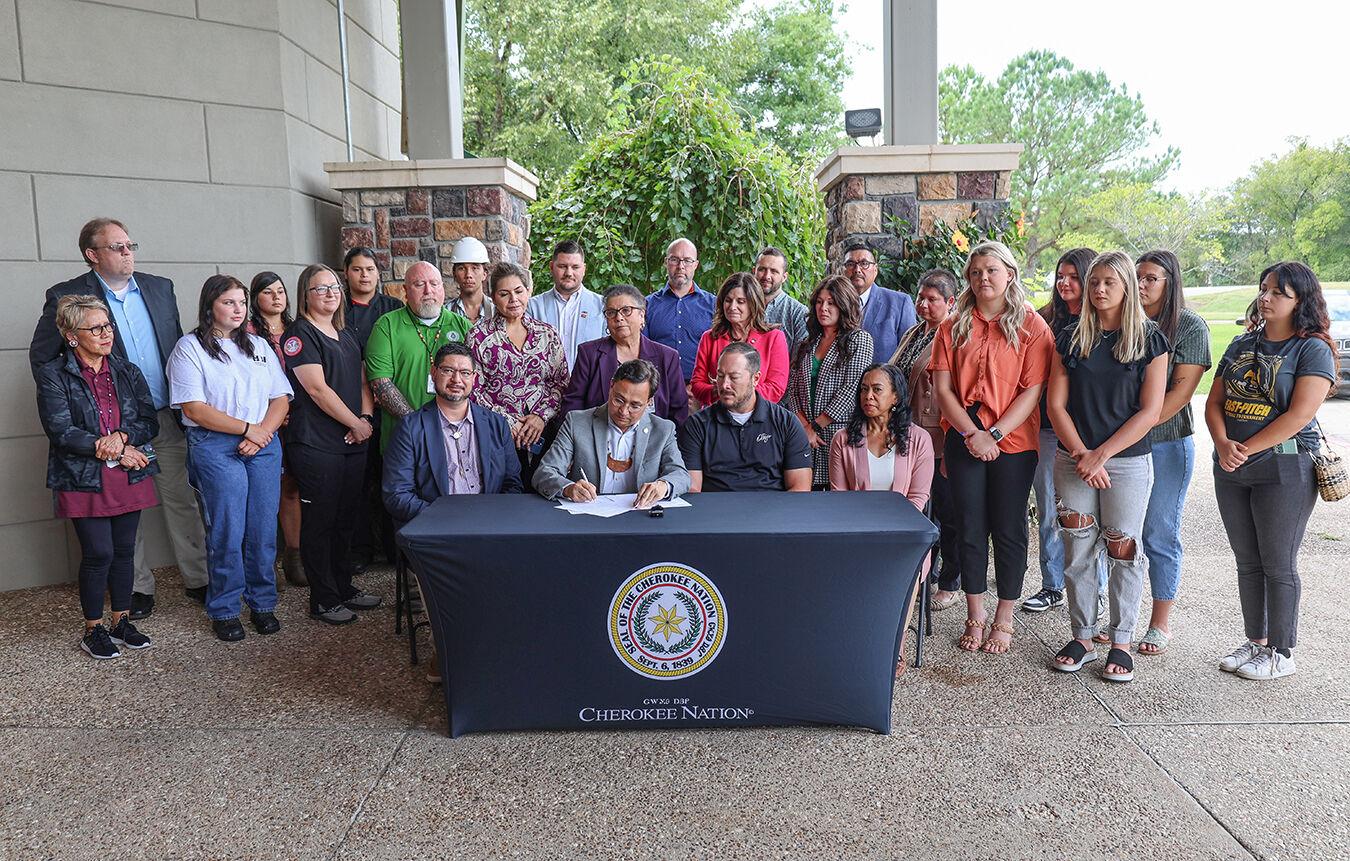
- Details
- By Chuck Hoskin Jr
Guest Opinion. The Cherokee Nation is blessed to include hundreds of thousands of individuals with great talents, potential and goals for their future. Our strength as a tribe is built on supporting each other to achieve these goals. That’s true today, just as it has been true throughout our history as a people.
One essential source of support is Cherokee Nation’s award-winning career training services and education programs. Every dollar we spend in these areas pays off in the future strength and resilience of our tribe.
We enjoy even greater benefits when participants in our training and education programs bring those skills to jobs at Cherokee Nation. That’s why I recently signed a new executive order to prioritize the hiring of Cherokee Nation citizens coming out of the tribe's career and education programs. Joined by Deputy Chief Bryan Warner and members of the Council of the Cherokee Nation, we are committed to helping every Cherokee citizen reach their full potential.
This order establishes a preference within the Cherokee Nation Employment Rights Act for employing participants of our career services and higher education programs. It also requires our Career Services and Education Services departments to develop performance measures and report tangible results.

The order also directs the tribe’s Career Services and Education Services departments to increase outreach to citizens experiencing greater barriers to employment, including Cherokee women, ONEFIRE participants escaping domestic violence, veterans, individuals in foster or adoption programs through Indian Child Welfare and members of historically disenfranchised communities, such as citizens of Freedmen descent. Our outreach efforts aim to ensure that opportunities are accessible to all. This, too, is a Cherokee core value: to be inclusive and to make extra efforts to help those who need it most, so that we can all rise together.
In 2019, we passed the Career Readiness Act, giving a boost to the tribe’s Career Services programs. Over the course of the last four years, we have invested over $197 million in a wide variety of job training programs, with almost 3,700 participants in the past year alone. With each participant, we are building a more talented and skilled workforce in northeast Oklahoma, while also creating long-term careers for Cherokees.
Additionally, we have increased college scholarships to $2,500 per semester and established a $5 million scholarship endowment for those entering behavioral health professions. As of this fall semester, we have over 6,600 students benefiting from Cherokee Nation college scholarships.
As a tribal government, we are determined to provide the tools, opportunities and support necessary for everyone to fulfill their personal dreams and build a bright future. This is just the beginning, as we will continue to strive for progress, inclusivity and prosperity for all Cherokees. Together, I know we can build a future where every Cherokee Nation citizen can thrive and contribute to the legacy of our tribe.
Chuck Hoskin, Jr. is the principal chief of the Cherokee Nation.
More Stories Like This
Disrupting Poverty Through OpportunityMarmot Day (Ground Hog Day) and the (Lack of) Law
Sanctuary Cities Under Siege: When Federal Power Becomes a Weapon Against the People
Denmark's Genocidal Practices in Greenland
Cherokee Nation Stands Against Predatory Lending
Help us defend tribal sovereignty.
At Native News Online, our mission is rooted in telling the stories that strengthen sovereignty and uplift Indigenous voices — not just at year’s end, but every single day.
Because of your generosity last year, we were able to keep our reporters on the ground in tribal communities, at national gatherings and in the halls of Congress — covering the issues that matter most to Indian Country: sovereignty, culture, education, health and economic opportunity.
That support sustained us through a tough year in 2025. Now, as we look to the year ahead, we need your help right now to ensure warrior journalism remains strong — reporting that defends tribal sovereignty, amplifies Native truth, and holds power accountable.
 The stakes couldn't be higher. Your support keeps Native voices heard, Native stories told and Native sovereignty defended.
The stakes couldn't be higher. Your support keeps Native voices heard, Native stories told and Native sovereignty defended.
Stand with Warrior Journalism today.
Levi Rickert (Potawatomi), Editor & Publisher

